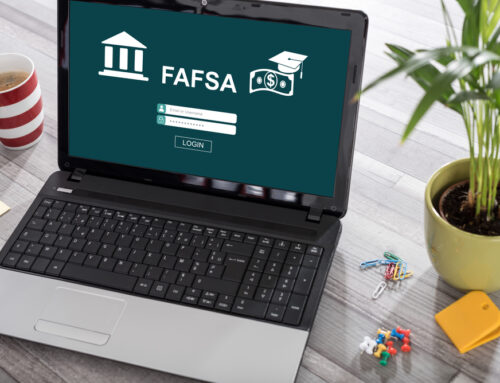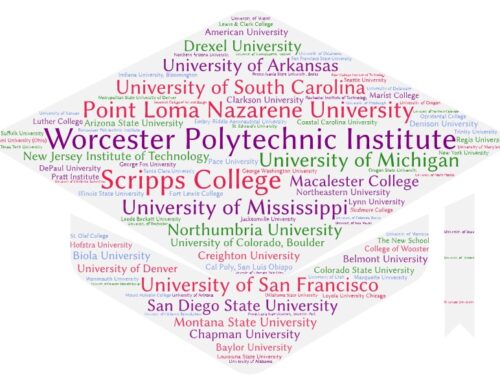 In a previous blog post, I explained that some colleges charge different amounts of tuition based on students’ majors. But what if you could attend college without paying tuition at all? Large and small schools across the nation have a variety of programs (not loans) that allow students to do just that.
In a previous blog post, I explained that some colleges charge different amounts of tuition based on students’ majors. But what if you could attend college without paying tuition at all? Large and small schools across the nation have a variety of programs (not loans) that allow students to do just that.
Hope College, a small, Christian college in Holland, Michigan launched Hope Forward this year. The program ultimately will offer free tuition for every undergraduate, funded by private donors. Twenty-two students will participate in the program this fall, and another 22 will be added next year. Graduates will be asked to express their gratitude by investing in future students through generous donations to their alma mater.
Perhaps a small, Christian college isn’t a good fit for you? The United States Military Academies are another option for a free college education. Of course, they come with a commitment to serve in the military for a certain number of years upon graduation.
Maybe you’d prefer to work on a ranch in exchange for tuition, room and board. Students at California’s Deep Springs College don’t pay any tuition, although they are expected to provide a small damage deposit and pay for books and other expenses. At Deep Springs, students receive a two-year liberal arts education while working on the school’s cattle ranch and alfalfa farm.
Talented musicians must audition for Philadelphia’s Curtis School of Music, which has awarded full-tuition scholarships to all students since 1928. While the music school doesn’t charge tuition, Curtis does have annual fees. Students pay a $1,750 comprehensive fee, along with other charges for health services and health insurance.
One of the most long-standing free tuition programs is offered at Kentucky’s Berea College. Since 1892, each admitted student has received the school’s Tuition Promise Scholarship, which amounts to more than $176,000 over four years, according to the school’s website. Students must work at least 10 hours per week on campus, and they earn roughly $5.60 to $8.75 hourly, which can be used to pay for room, board and books.
If you can’t find a completely free college that meets your needs, you might want to check out a school with an Income Share Agreement (ISA). Relatively rare, ISAs allow students to repay the “borrowed” amount as a percentage of their future income for a set period. Unlike loans, ISAs have no interest. Lackawanna College, Robert Morris University and Clarkson University all offer ISAs.
The aforementioned schools are all small private colleges, but some big public universities offer ISAs as well. For example, according to the University of Utah’s website, “students in all majors who are within two years of completing their degrees may receive a $3,000 to $10,000 ISA to fill funding gaps after grants and scholarships.” Upon graduation, students pay a fixed percent of their earned income for a fixed period of time, depending on their major.
Purdue University in Indiana has the “Back a Boiler” program. Mary-Claire Cartwright, manager of the program, told education news website The 74 that “students with a major that traditionally earns more following graduation may pay a smaller percentage of income for a shorter term versus a higher percentage for a longer term on a traditionally lower-earning major.”
As with everything involving money, doing your research is vital. Tuition-free programs have strings attached, be they military service, work requirements, repayment based on income, or as at Hope College, an expectation to “do the right thing.”





